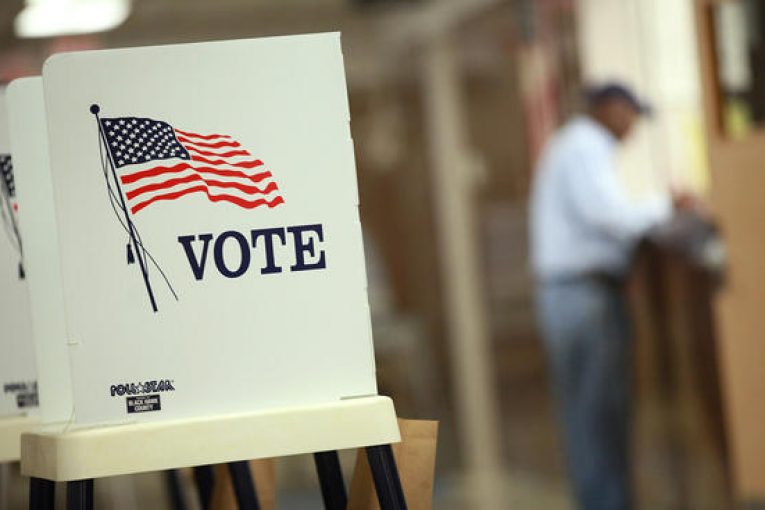

By Delilah Hammons and Catherine Hamilton
BATON ROUGE, LA – Civil rights groups have filed suit here this week after the Louisiana Legislature reversed Governor John Bel Edwards’ veto of a new, “unfair” congressional map that excludes a second majority-Black voting district, according to the ACLU.
Governor’s veto: https://gov.louisiana.gov/index.cfm/newsroom/detail/3585
The NAACP Legal Defense and Educational Fund, Inc. (LDF), American Civil Liberties Union (ACLU), ACLU of Louisiana and Paul, Weiss, Rifkind, Wharton & Garrison LLP sued, in the name of the Louisiana State Conference of the NAACP, Power Coalition for Equity and Justice, and individuals Press Robinson, Dorothy Nairne, E. René Soulé, Alice Washington, and Clee Ernest Lowe.
They filed the legal action on the basis that the new congressional map violated Section 2 of the Voting Rights Act.
The groups made statements on the Legislature’s decision.
“The congressional map passed by the Louisiana Legislature in February rejected basic principles of fairness and equity,” said NAACP Louisiana State Conference President Michael McClanahan, noting “The Legislature knew that (it) could pass a map that complied with the Voting Rights Act and honored the will of community members who stood up and spoke out for fair maps during the redistricting process.”
“When they failed to, the governor rightfully vetoed their unlawful and unfair map,” McClanahan continued. “We are going to federal court to demand a map that honors the rights and representation of Black Louisianans. We will be tireless in this fight.”
“People from every corner of Louisiana made their voices heard in the redistricting process in a unified call for fair and representative maps,” said Ashley Shelton, president and CEO of Power Coalition for Equity and Justice.
“They demanded a second majority-Black congressional district because the math is simple, and the law is clear. One-third of Louisiana voters are Black. One-third of six is two. The Voting Rights Act requires that Black voters have an equal opportunity to participate in our political processes, and our maps must reflect this.”
“The governor did the right thing by vetoing the map and we hope the courts will now intervene to right the wrongs of the Legislature,” she said. “The people of Louisiana deserve maps that represent all of us and no longer drown out the voices of Black voters.”
“The map vetoed by the governor was unlawful and unfair,” said LDF Policy Counsel Jared Evans. “It clearly violated the Voting Rights Act of 1965 by diluting the voices of Louisiana’s one-third Black voting population. The Legislature never should have passed an unlawful map, and we will not rest until a fair and representative map is enforced for the voters of Louisiana.”
“Black Louisianans deserve fair and equal representation. It is unconscionable that the Louisiana Legislature is so determined to preserve the racial status quo that they issued just the third veto override in the state’s history rather than take the opportunity to draw a fair map,” said Stuart C. Naifeh, LDF’s manager of the Redistricting Project.
Alora Thomas-Lundborg, an ACLU attorney stated “We are challenging these maps because they illegally undermine the political strength of Black voters in Louisiana.” Building on that she said “These maps run contrary to the principle of a representative democracy and clearly violate the Voting Rights Act.”
Press Robinson, the complaint’s lead plaintiff stated “I am disappointed that the legislature voted to override the governor’s veto, but not at all surprised. I disagree strongly with the legislature’s decision, and I believe that it is necessary to defend my right to vote — and the rights of all Black Louisianans — by taking this to the courts.”
Robinson added “I believe that the Voting Rights Act is intended to stop actions just like this, and I am not afraid to advocate for myself and the rights of my community.”
The ACLU pointed out that “Louisiana’s voting-age population is nearly one-third Black. Under the Legislature’s map, Black Louisianans comprise the majority in only one of the state’s six congressional districts.”
The ACLU explained that “no Black candidate has won election to any of those seats since the 19th century…voting patterns in Louisiana [are] breaking down starkly along racial lines, the result is that congressional candidates supported by the vast majority of Black voters never succeed in any of the five other districts.”
“While only 58 percent of Louisiana’s population is non-Hispanic white, white voters — whose votes also break down along racial lines in most of the state—control the outcome in five out of six — or 83.3 percent — of the districts under the maps,” detailed the ACLU about the white population being overrepresented.
The ACLU added the “underrepresentation of Black voters in Louisiana’s congressional delegation, Black voters (only have) an opportunity to elect candidates of their choice in only one — or 16.7 percent — of the districts.”
The proponents of the lawsuit said Governor Edwards understood the issue and he vetoed the legislature’s proposed map saying that its “not fair to the people of Louisiana and does not meet the standards set forth in the federal Voting Rights Act.”